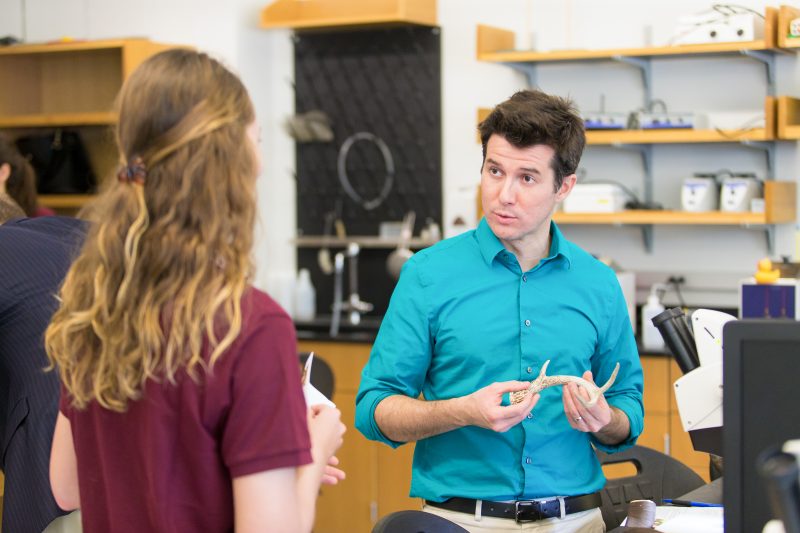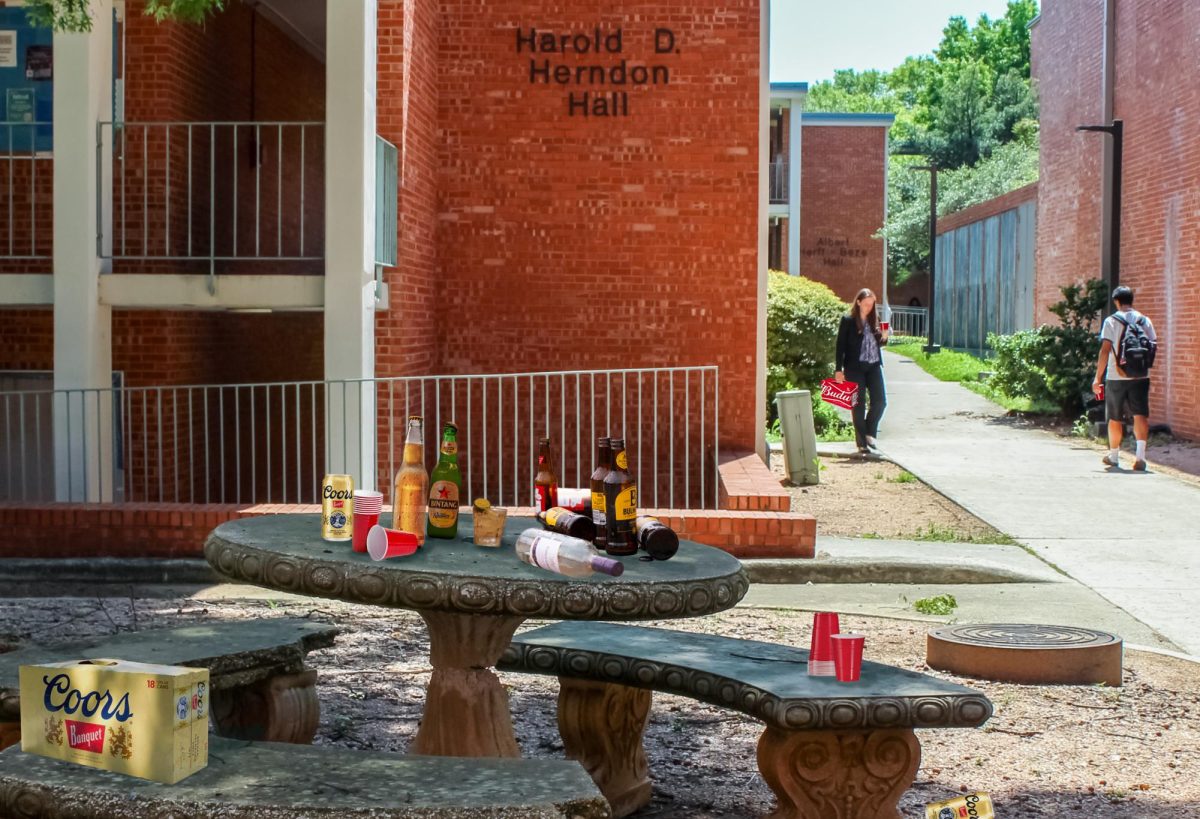This past summer, Eduardo Cabral Balreira, associate professor of mathematics, attended a workshop put on by The Metric Geometry and Gerrymandering Group (MGGG). The group was started by Moon Duchin, professor of mathematics at Tufts University, and has been on a national tour that trains professors.
“The workshop has been an attempt by a group of mathematicians to introduce mathematics to a political science problem. This is the problem of gerrymandering,” Balreira said. “There have been many attempts to get mathematicians involved, and I believe, as a side effect of the elections in 2016, a lot of people [decided], ‘Okay, let’s get involved in this process.’ ”
The actual process of gerrymandering has been going on since the creation of the U.S. Constitution, but it has developed into an abused system in the past century.
“Gerrymandering is the process of redrawing district lines to the advantage of a party or to ensure that the current number of majority-minority districts are represented. So it’s basically partisan or racial gerrymandering,” said Keesha Middlemass, associate professor of political science.
The process has become so extreme that parties have begun to use it to prevent the opposing side from receiving an equal chance at elections or to prevent minority groups from having any block voting power.
“The majority party will control both the redistricting process and all the election laws during their term in office. So they can cut the other party out and they can restructure the laws in such a way that will keep them in office longer,” said Henry Flores, professor of political science at St. Mary’s University. “Gerrymanderers will also use racial groups that have significant percentage of populations in districts and either chop them up and divide them into districts to bolster a party or individual or to keep that group from voting in any strength.”
Upon Balreira’s emergence into the political realm, he has started collaborating with professors in other departments such as Flores, who has spent the past 20 years working with all levels of government on gerrymandering issues. In the pursuit of creating the perfect district, many professors must overcome the large amount of variables within politics.
“There are so many variables that you have to hold in place, control for, that I think that it’s almost impossible to meet the mathematical standards [of a perfect congressional district.] You can never tell when a politician is going to get involved and all of sudden make this decision that defies all rules of logic and mathematics,” Flores said.
Though Flores is more than willing to contribute to the pursuit of correcting gerrymandering, he has doubts that it’ll be able to account for all levels of human behavior.
Despite the many obstacles Balreira and the MGGG see, hope for change in the form of the recent Pennsylvania Supreme Court ruling that declared the state legislature’s redistricting to be too extreme in excluding democratic voices, and therefore unconstitutional.
“The workshops were a training, a beginning of a shift in academic career so that I can become a lot more knowledgeable and useful in this process. After this course, the realization is that I have to get involved, so I am trying to get involved in local redistricting,” Balreira said.
Balreira took part in a special part of the workshop that begins his training to be a special witness in court for gerrymandering. However, certification for such a position will take Balreira years more of research and publishing that will establish him in the political field. In the meantime Balreira intends to include gerrymandering in his math courses to continue informing people about the issue.
“I’m preparing materials to start teaching [gerrymandering] in Intro to Modern Mathematics, where I already included predictive analytics,” Balreira said. “We can also [use predictive analytics for gerrymandering. Whatever I will do, I want to focus on the mathematical side of gerrymandering. We want to introduce mathematicians to the process, so we are not driven by any political process.”
Balreira is already in the process of starting his writings over gerrymandering and is planning on interweaving that into the university’s curriculum.








